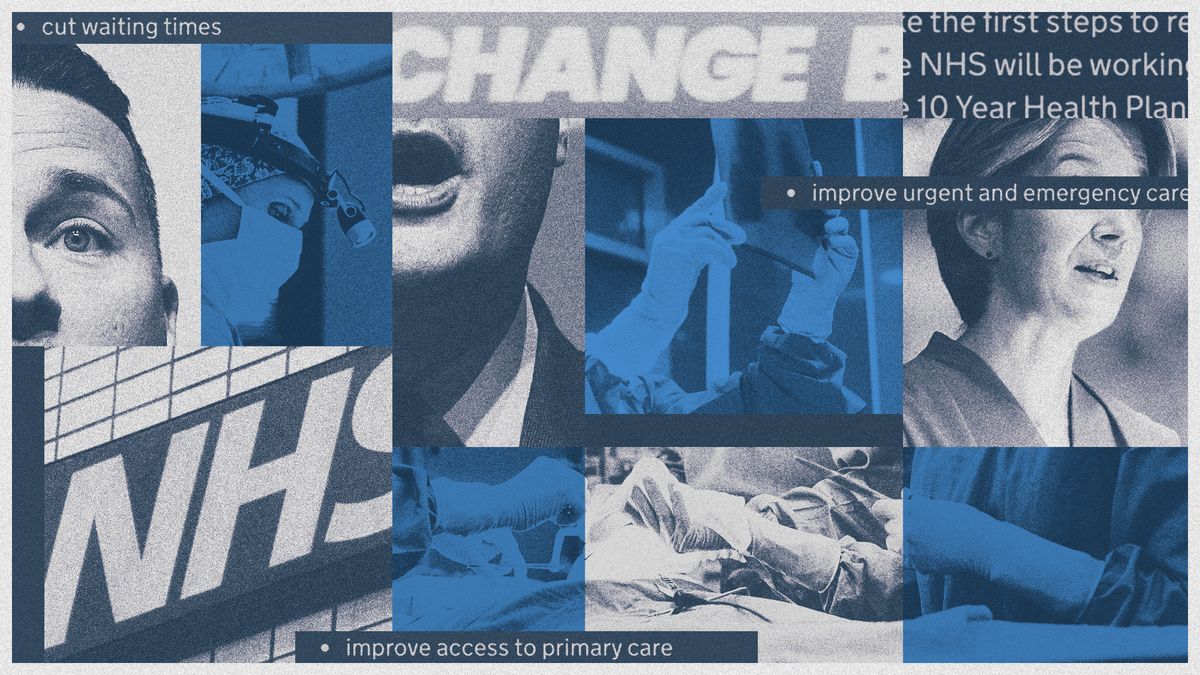Unmasking the Power Dynamics: Who Truly Controls the NHS?
As discussions about the National Health Service (NHS) heat up, prominent figures like Wes Streeting are raising fundamental questions about leadership and accountability within this revered institution. The NHS, a cornerstone of British life, operates within a complex web of power dynamics that influence its decisions, policies, and ultimately, the quality of healthcare delivered to millions. This exploration seeks to unmask the intricate layers of authority that shape the NHS and examine the implications for its future.
The Structure of Power within the NHS
The NHS is not just a monolithic entity; it is a vast organization comprising various components, each with its own leadership and authority structures. To understand who truly controls the NHS, we must dissect its framework:
- Department of Health and Social Care (DHSC): At the helm of the NHS is the DHSC, responsible for government policy and funding. The Secretary of State for Health and Social Care exerts significant influence over NHS priorities and strategic direction.
- National Health Service England (NHSE): This body oversees the operation of the NHS in England. NHSE is tasked with ensuring that resources are allocated efficiently and that healthcare services meet established standards.
- Integrated Care Systems (ICS): Emerging as a key player, ICS brings together NHS organizations and local authorities to plan and deliver services tailored to community needs. This structure aims to foster collaboration but also raises questions about local versus national control.
This multi-layered structure creates a unique power dynamic where decisions are influenced at various levels, from government policy down to local health boards. Understanding this hierarchy is crucial to deciphering the ongoing debates about accountability and control within the NHS.
The Role of Political Leadership
Political leadership plays a pivotal role in shaping the NHS. The government, through the DHSC, sets the overarching health agenda, which can change with each administration. For example, recent discussions initiated by Wes Streeting emphasize the need for transparency and accountability, particularly in light of the challenges faced during the COVID-19 pandemic.
Streeting’s inquiries reflect a broader concern regarding how political decisions impact healthcare delivery. When political leaders prioritize austerity measures, for instance, the ramifications are felt throughout the NHS, affecting staffing, resources, and patient care. This interplay raises important questions:
- Are political leaders adequately held accountable for their decisions impacting the NHS?
- How do changes in government affect the long-term stability and vision for the NHS?
Accountability: The Balancing Act
Accountability within the NHS is a complex issue. While the DHSC and NHSE are expected to be transparent and answerable to the public, the reality is often murky. Reports of mismanagement, funding discrepancies, and service failures are not uncommon, leading to public outcry and calls for reform.
The challenge lies in balancing accountability with the need for operational autonomy. NHS leaders must make critical decisions swiftly, often in high-pressure environments. However, this autonomy can lead to a disconnect between those making decisions and the communities they serve.
Public Perception and Engagement
The relationship between the NHS and the public is deeply intertwined with power dynamics. Public trust is essential for the NHS to function effectively; however, trust can erode if citizens feel unrepresented or unheard. The rise of social media platforms has given patients a voice, enabling them to share experiences and hold the NHS to account. This shift in power dynamics can lead to:
- Increased Transparency: Public scrutiny can compel NHS leaders to be more transparent about their decision-making processes.
- Engagement in Policy Development: Patients and communities can play a vital role in shaping health services that better meet their needs.
However, this engagement must be managed carefully to ensure that it leads to constructive dialogue rather than divisive conflict.
Financial Control: Who Holds the Purse Strings?
Financial management is another critical aspect of power dynamics within the NHS. Funding decisions made at the governmental level can have profound implications for service delivery. The NHS operates under a tight budget, and financial strain often leads to difficult choices regarding resource allocation.
With increasing demands on the NHS, including an aging population and rising chronic diseases, financial control becomes a battleground. The question arises: who should have the final say in funding allocations? Should it be political leaders prioritizing fiscal responsibility, or should healthcare professionals determine where resources are most needed?
Future Implications: Navigating Change
The future of the NHS hangs in a delicate balance. As Wes Streeting and others push for reforms, the ongoing discussions around power dynamics highlight the need for a more equitable system that prioritizes patient care while ensuring accountability at all levels. The implications of these discussions could lead to:
- Reform of Governance Structures: Simplifying the NHS governance model may help clarify decision-making roles and responsibilities.
- Enhanced Public Engagement: Establishing more formal channels for public input could foster trust and improve service delivery.
- Focus on Sustainability: A shift towards sustainable practices in healthcare delivery may ensure that the NHS can meet future demands without compromising care quality.
Conclusion: The Path Forward
Unmasking the power dynamics within the NHS reveals a complex interplay of political authority, financial control, and public engagement. As debates about leadership and accountability continue to unfold, it is clear that the future of the NHS will depend on the ability of its leaders to navigate these dynamics effectively. By fostering transparency, encouraging public participation, and prioritizing patient care, the NHS can continue to thrive as a vital resource for all.
In light of the ongoing discussions, it is essential for stakeholders at every level to remain engaged and informed. The NHS belongs to the people it serves, and together, there is potential to shape its future for the better.
See more WebMD Network



